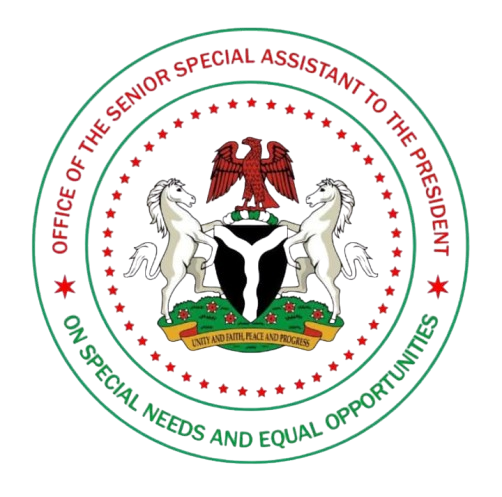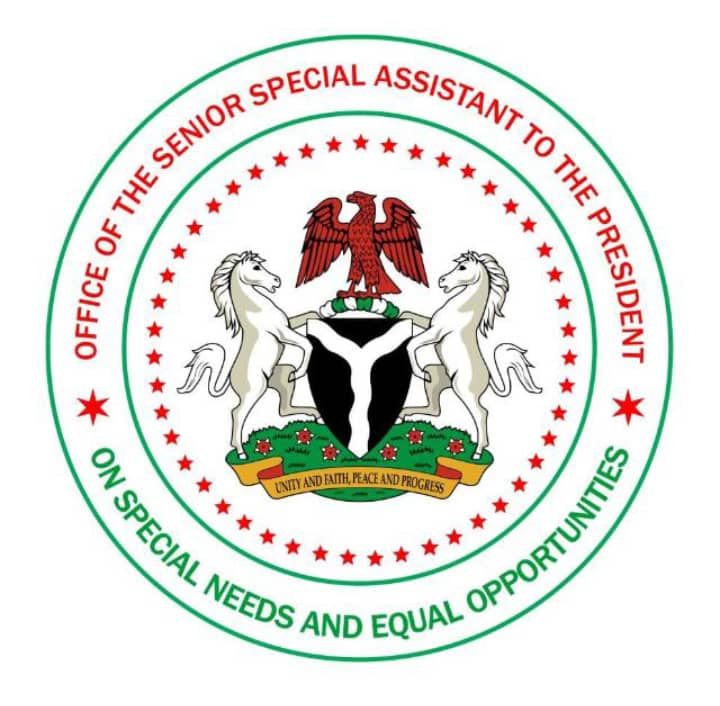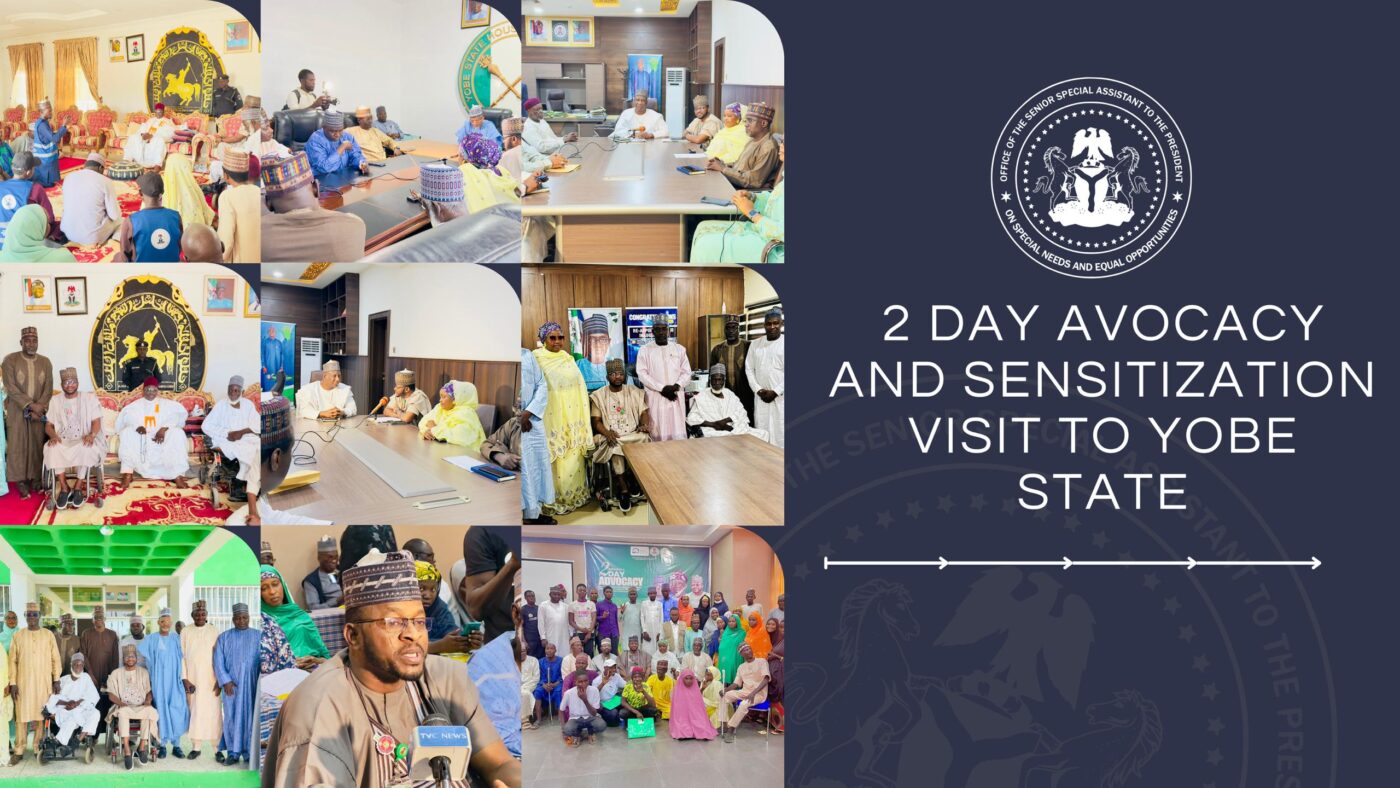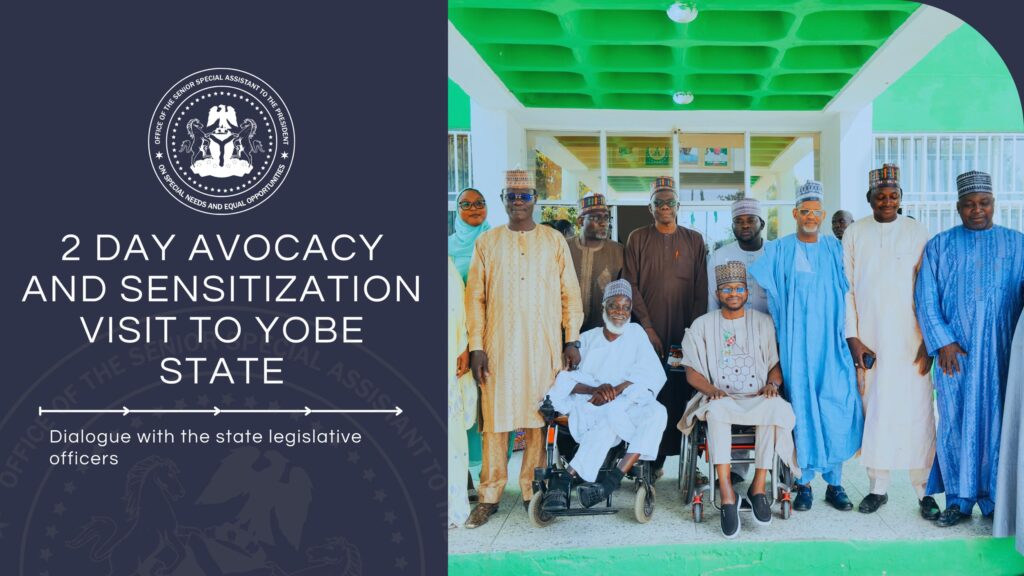
By Lanre Oloyede
In furtherance of the mandate of his office to ensure that no part of the country is left uncatered to within the ambit of the Renewed Hope Agenda of the current administration, the Senior Special Assistant to President Bola Ahmed Tinubu on Special Needs and Equal Opportunities, Hon. Mohammed Abba Isa, has made a strong call for inclusiveness and access to quality healthcare services for Persons With Disabilities, PWDs, in Yobe State.
Hon. Abba Isa made the call at the just concluded transformative two-day advocacy and sensitization visit to Yobe State.
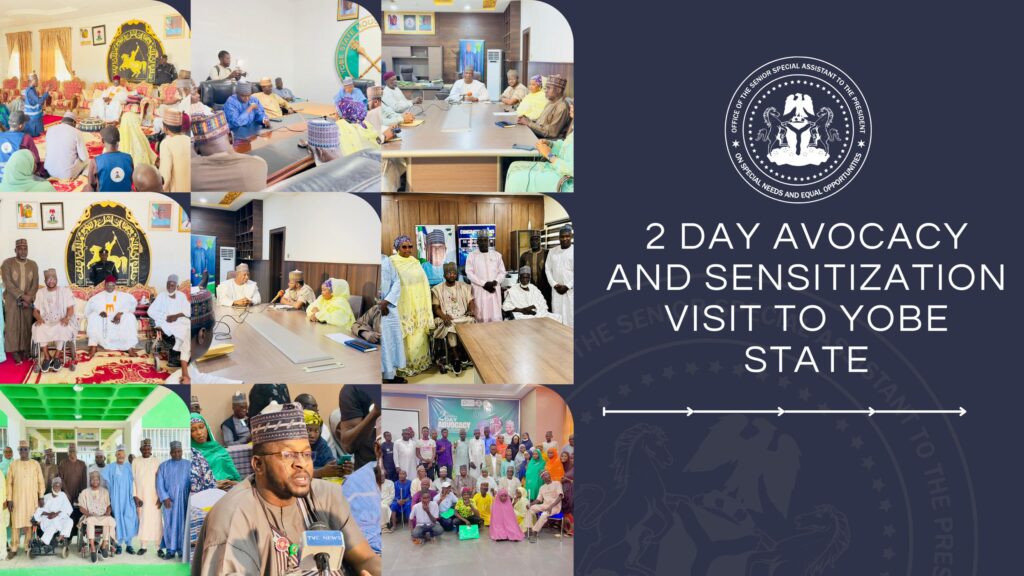
The initiative, organized by the office of the Senior Special Assistant to the President on Special Needs and Equal Opportunities in partnership with the Department of Family Health of Yobe State Ministry of Health and Human Services with support from the Lafiya UK-Nigeria Partnership for Inclusive Health, was focused on promoting inclusive healthcare systems and advancing the rights of persons with disabilities (PWDs).
This effort aligns with President Bola Ahmed Tinubu’s Renewed Hope Agenda, which prioritizes inclusion and empowerment for all Nigerians, particularly those with disabilities
The advocacy visit featured high-level engagements aimed at strengthening the framework for disability inclusion in Yobe State.
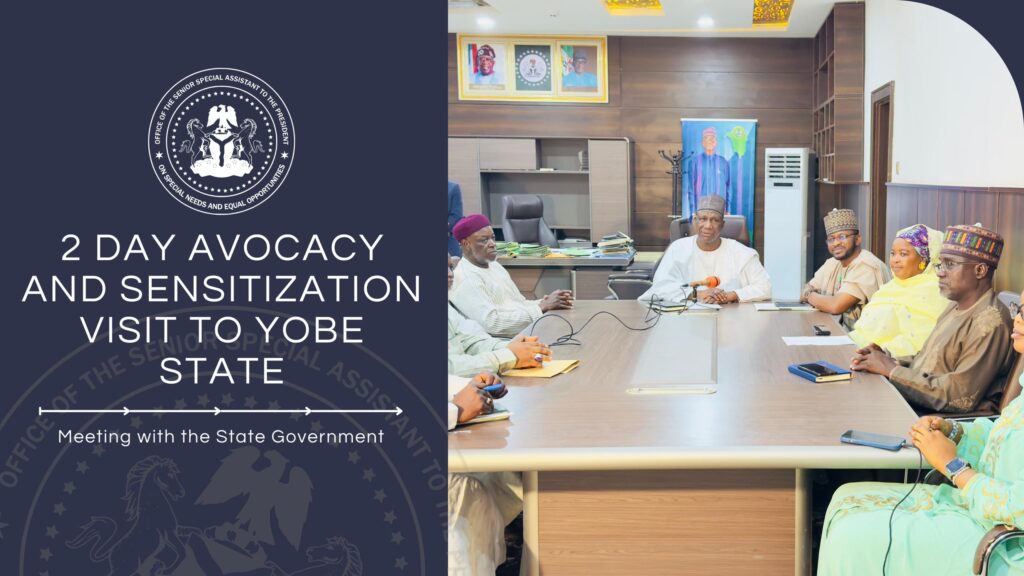
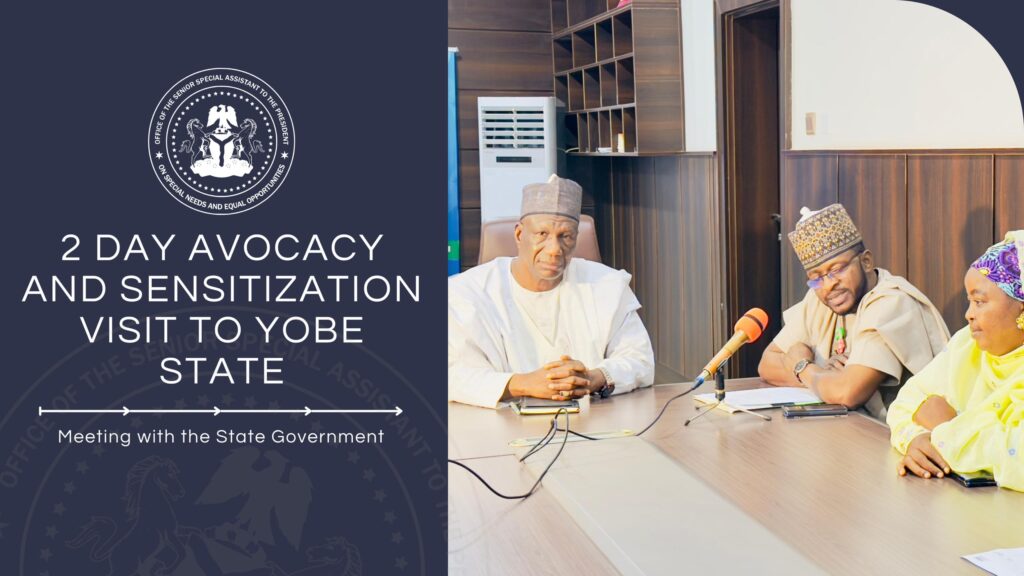
One of the key highlights was a meeting with the Executive Governor of Yobe State, Mai Mala Buni, who was ably represented by the Secretary to the State Government (SSG), Baba Malam Wali. The discussions centered on the urgent need to finalize the signing of the State Disability Law, a critical piece of legislation that will ensure equal rights and opportunities for PWDs in the state.
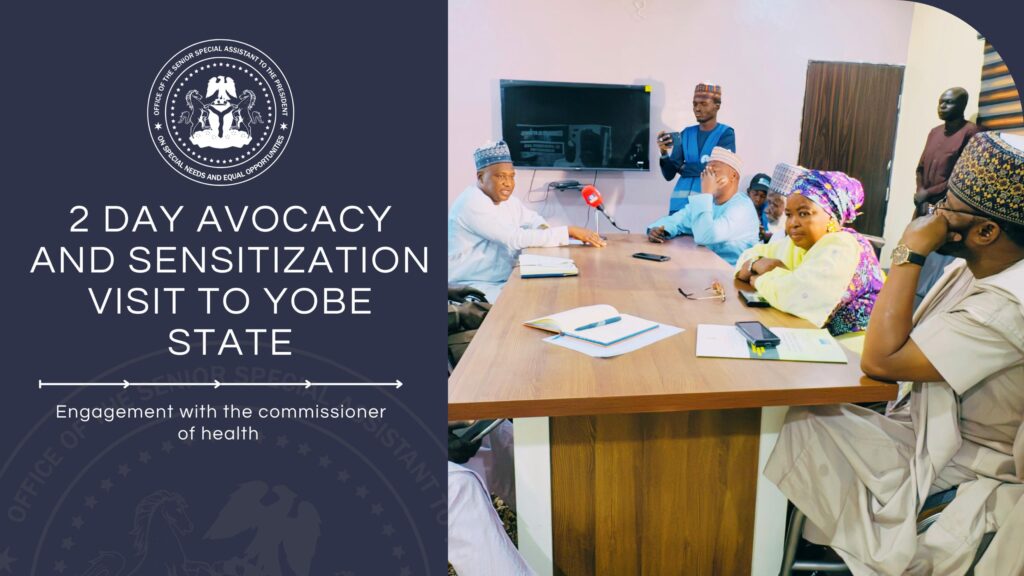
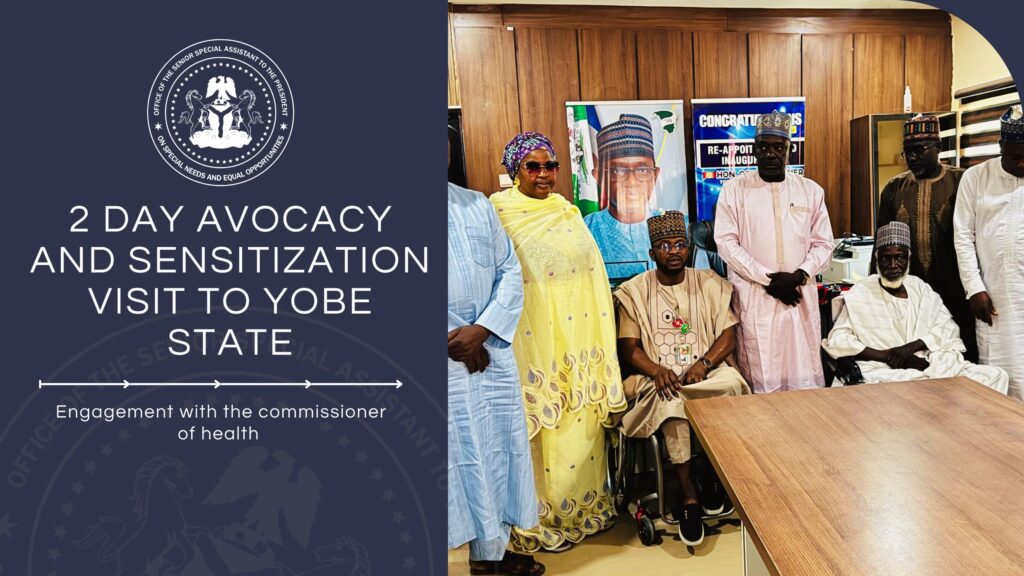
The Senior presidential aide also held a strategic meeting with the Commissioner of Health, Dr Mohammed Lawan Gana, to explore practical solutions for improving healthcare access and affordability for persons with disabilities. The dialogue aimed to identify barriers within the current healthcare system and propose reforms to make services more inclusive and accessible.
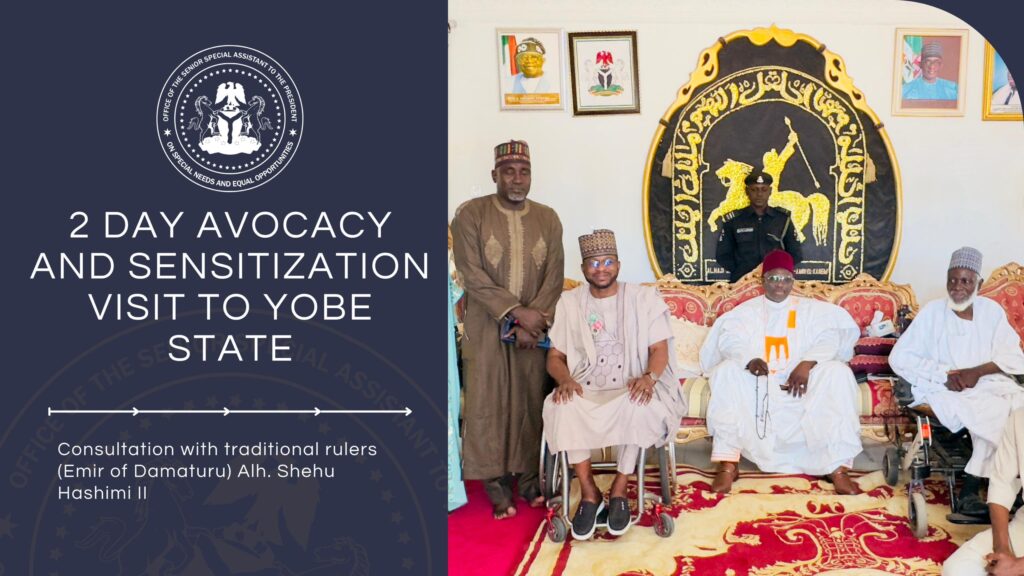
Recognizing the importance of grassroots advocacy, the SSAP engaged with traditional rulers to build community-level support for disability-friendly policies. The discussions highlighted the role of cultural and community leaders in fostering societal acceptance of PWDs and advocating for their full integration into all aspects of life.
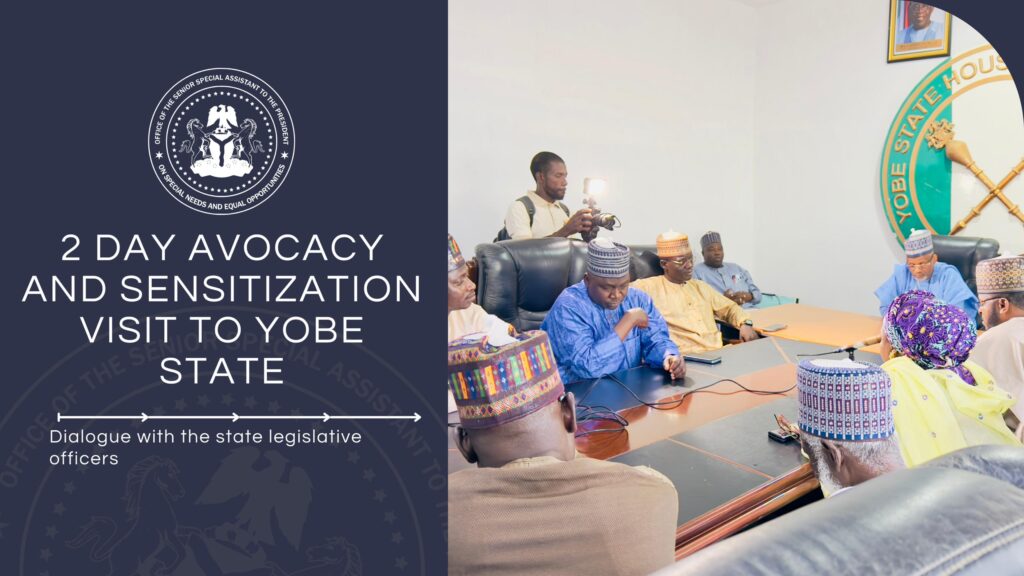
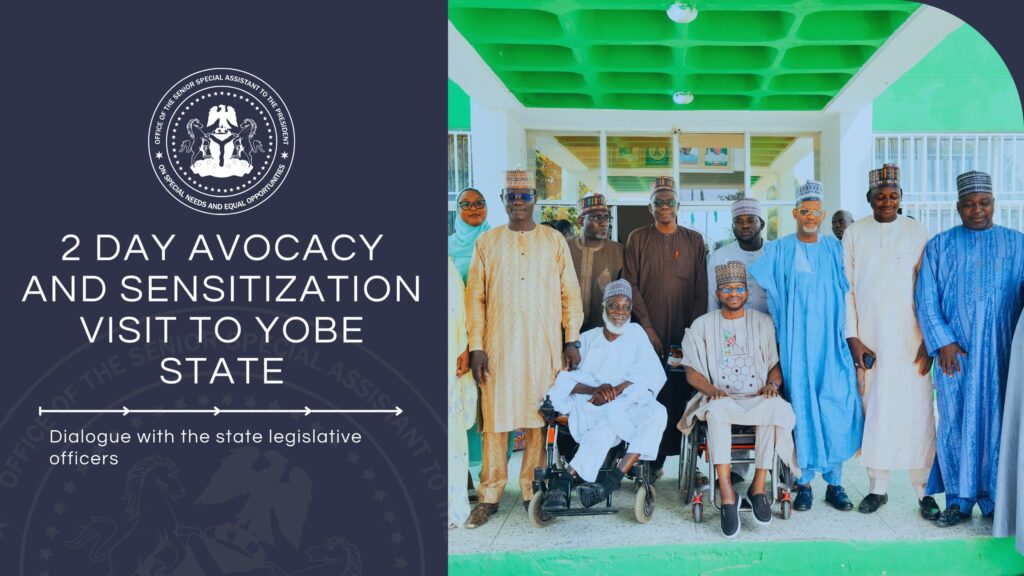
In addition, the presidential aide met with the Yobe State House of Assembly to advocate for disability-friendly legislation. The meeting underscored the importance of aligning state laws with the Discrimination Against Persons with Disabilities (Prohibition) Act at the federal level, as well as global conventions on the rights of persons with disabilities.
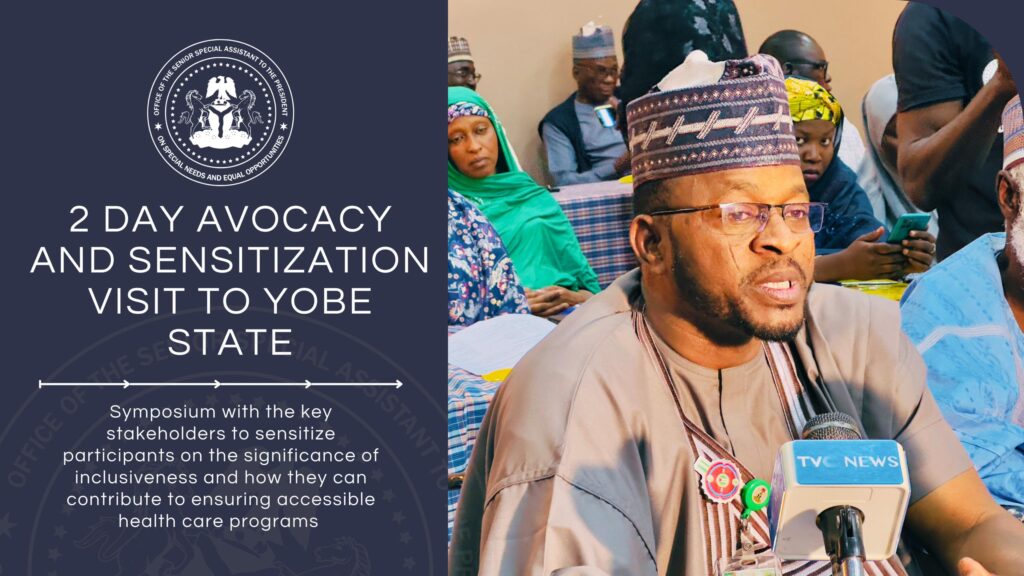
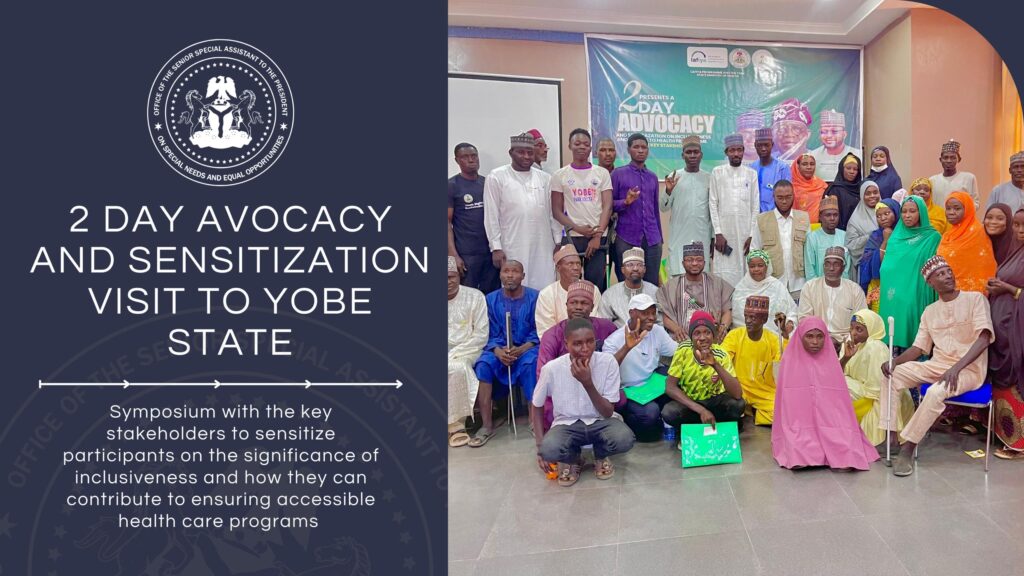
The two-day visit concluded with a symposium that brought together stakeholders from government, civil society, healthcare, and other sectors. The platform served as an opportunity to sensitize participants on the importance of inclusiveness in healthcare delivery and to encourage collaborative efforts to dismantle barriers faced by PWDs.
Speaking on the topic: Mainstreaming Disability into Community and Facility Health Services: Enablers and Barriers, Hon. Abba Isa, who delivered the keynote address emphasized that inclusive healthcare systems must be an integral part of the state’s development agenda, reflecting national and international standards for disability inclusion.
The SSAP mentioned that President Bola Ahmed Tinubu’s Renewed Hope Agenda is the driving force behind these efforts, serving as a beacon of inspiration for creating a more equitable Nigeria. He stated that the visit was a testament to the Federal Government’s unwavering commitment to ensuring no Nigerian is left behind, regardless of disability.
The Senior presidential aide maintained that Persons with Disabilities, like every other Nigerian, deserve equitable access to healthcare, while stressing that this requires us to address several critical barriers, including:
*Physical barriers such as inaccessible health facilities;
*Policy gaps which fail to integrate the specific health needs of PWDs; and
*Systemic challenges, including limited capacity among healthcare workers to deliver disability-inclusive services.
The SSAP stressed that to achieve inclusiveness and access to healthcare delivery in Nigeria, we must prioritize the following:
– Physical Access to Healthcare Facilities: Ensuring that health centers and hospitals are designed to accommodate individuals with physical disabilities.
– Responsive Healthcare Delivery: Addressing the unique health needs of PWDs by eliminating barriers to seeking healthcare services.
– Empowering Health Professionals: Building the capacity of health professionals, program officers, and policymakers to implement disability-inclusive health practices.
In closing, Hon. Abba Isa commended the Department of Family Health of the Yobe State Ministry of Health and Human Services and the Lafiya UK-Nigeria Partnership for Inclusive Health for the timely and significant initiative and for their dedication to ensuring inclusive and accessible healthcare for all Nigerians, particularly Persons with Disabilities (PWDs).
It was a consensus that through engagements with stakeholders and advocacy at multiple levels, the visit has laid the foundation for improved inclusion and accessibility in Yobe State, even as these efforts reflect the broader goal of building a society where every citizen has equal opportunities to thrive.
